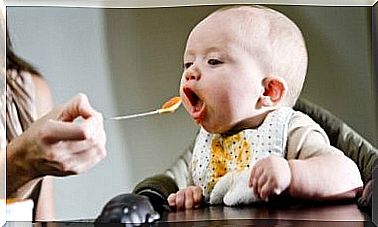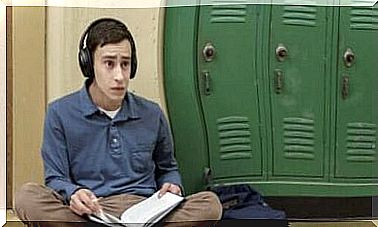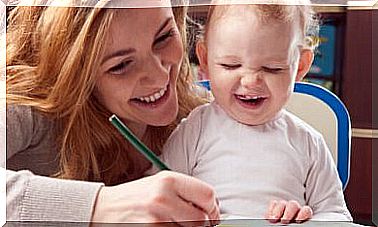What To Do If My Child Hits His Peers At School?

“What to do if my child hits his peers at school?”. This is a situation that scares both parents and teachers a lot, as a violent person could be emerging. Certainly, it’s an emotional shock and a difficult situation for parents.
These children’s actions put the physical and mental integrity of other peers at risk. And, of course, the child’s future personality and the friendships he can bond with are at stake.
You may feel that you are not doing the right thing with your children. Also, there is a feeling of unease because, when it happens, you are not around to resolve the situation.
Generally, a child hits his peers at school when he is too impulsive or when things at home are not going very well. However, it can also happen because the child is imitating someone or wants to get attention.
If, during their growth, the child observes that between their parents or in their environment there is constant aggressive treatment based on shouting and insults, they will take this pattern of behavior to themselves.
On the other hand, if the child perceives that a close relative treats other people badly and is violent, he can adopt this way of being.

What can happen if my child hits peers at school?
The first thing is that he can be abused by other children, as the degree of tolerance that his or her peers may have towards him or her would end. So they can try to resolve the situation with their own hands.
On the other hand, the school administration could take drastic measures in relation to this matter, even reaching the level of expulsion from the institution.
Colleagues may reject him and he would end up being alone or teaming up with someone who doesn’t suit him. In addition, the social impact also has a preponderance in these cases, since the environment in which the child or adolescent who has this behavior develops may start to reject it.
The saddest of cases and the most feared by parents if the behavior becomes completely inappropriate is to see the child being sent to a reformatory.
1. Communicate with your child
Talk to your children honestly about what is happening to them, ask them to explain how you can help them. It is always important to have open communication with children to get to know their concerns, problems, goals and dreams.
When the behavior is just beginning and the child is young, a child psychologist can shape the child’s way of being.
2. Use a professional
If the pattern of behavior is already well defined, an expert can deal more deeply with this case.
Sometimes children feel more comfortable talking about this topic with a stranger than with us. And so we could come up with a quicker solution to this problem at the hands of someone who knows this area.
3. Teach that this is not the way
When a child is abused, you should not encourage him to respond in the same way. Remember that “violence breeds violence”. Therefore, you must encourage the ability to dialogue and the ability to know how to deal with situations of certain stress or that go outside your comfort zone.

4. Be an example
Show tolerance wherever you go with your kids. You will often come across unpleasant situations, such as in traffic or in line at the supermarket, for example.
If you act in a verbally violent way in front of your children, they will understand that this is a form of defense and will use it in the future to solve their own problems.
5. Promote a healthy family life based on respect
Finally, promote healthy family life. Give your kids the treats they deserve without overdoing it, and try not to focus on materialism. Nurture love in your family and control what your children do without invading their space.
Finally, if you consider it necessary, seek professional help, using a psychologist, for example.









